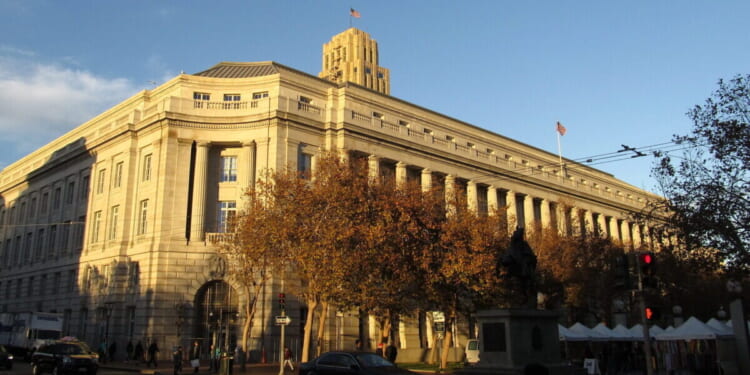In a recent New York Times article, dozens of inferior court judges violated the Code of Conduct for United States Judges by taking pot shots at the Supreme Court’s emergency docket.
Some judges called Supreme Court reversals “demoralizing,” while others whined that the Supreme Court’s reversals at the very least created the perception of partisanship on the justices’ part, as the Supreme Court mostly has been reversing rulings that had gone against Trump administration policies. One judge compared the relationship between the justices and that judge’s district to “a war zone.”
Article III of the Constitution establishes a judicial hierarchy. At the top is the Supreme Court. It is the final arbiter and head of the judicial branch, just as the sitting president is the head of the executive branch. The Framers, understanding that the Supreme Court could not alone manage all cases, provided for the creation of inferior courts by Congress. Through statutes, Congress has created these, providing for nearly a thousand judgeships on district courts and courts of appeals spread across our country. These inferior courts must follow Supreme Court precedent and the Code of Conduct for United States Judges. Among other things, the code prohibits judges from making political comments or even comments that a reasonable observer could view as such.
The griping of inferior court judges stems from about two dozen rulings on the Supreme Court’s emergency docket. This docket allows justices to pause orders from lower courts while the litigation proceeds. Radicals trying to grind to a halt President Donald Trump’s electoral mandate repeatedly have run to district courts in leftist hellholes like the District of Columbia, San Francisco, Los Angeles, Chicago, New York City, and Boston. The judges there are overwhelmingly radical leftists. Even the Republican appointees are, for the most part, milquetoast because home-state Democrat senators can veto quality conservative nominees thanks to a Senate tradition known as the blue slip. The Supreme Court has correctly reversed absurd inferior court orders issued by judges who refuse to accept that President Trump is implementing an agenda for which the American people voted.
Revealing Their Partisanship
Every judge who responded to questions from The Times did so anonymously. This refusal to come out publicly is cowardly, but the judges hid in the shadows for one reason: ethics enforcement. Putting their names to comments trashing the Supreme Court would rightly have subjected these inferior court disgraces to a torrent of ethics complaints. These judges fail to see the obvious: their accusing the Supreme Court of partisanship in such a blatantly unethical way explicitly reveals their own partisanship. The biased authors of the article make sure to underscore that nearly half of the Republican-appointed judges who responded to questions about the Supreme Court were critical. But the authors do not tell us, for instance, where these Republican appointees sit. If these judges are in blue bastions like Massachusetts, Illinois, California, or Oregon, they do not remotely resemble judicial conservatives.
The article is grossly biased in several other ways. Judge William Young, a virulently anti-Trump district judge in Massachusetts, in recent months both inserted a gratuitous footnote into one opinion to bash the Supreme Court’s monumental decision on presidential immunity and wrote a 12-page screed against President Trump as part of another opinion. The authors make sure to hammer home that Judge Young was an appointee of President Reagan. When President Reagan first nominated Judge Young in 1984, the two Democrat Massachusetts senators were Ted Kennedy and Paul Tsongas. When the Senate confirmed Judge Young in 1985, another hardcore leftist, John Kerry, had replaced Tsongas. In other words, notoriously leftist Massachusetts senators helped pick Young. Young may be a Reagan appointee, but he is no judicial conservative.
The article authors also make sure to highlight Republican former judges who are critical of the Supreme Court. For instance, J. Michael Luttig, rejected multiple times for a Supreme Court nomination, receives lots of attention in the article. The authors highlight that Luttig served under President George H.W. Bush. Luttig in recent years has suffered several legal humiliations, most notably in Trump v. Anderson. There, the Supreme Court reversed an absurd decision by the Colorado Supreme Court that had thrown President Trump off the ballot under the Insurrection Clause of the Fourteenth Amendment. Luttig had called the Colorado decision “masterful and unassailable.” The Supreme Court’s 9-0 reversal of that ludicrous decision proves otherwise.
Roberts Must Rebuke These Judges
Chief Justice John Roberts needs to get his judicial house in order. This latest New York Times drive-by shooting by anonymous federal judges is the most recent blatant example of out-of-control rogue judges sabotaging the federal judiciary, the presidency, and American voters. Out of more than 400 judges who received requests for comment, nearly 20 percent responded. This is shameful, unacceptable, and startling — our federal judiciary has been politicized and weaponized.
Judges have a modest, but crucial, role. They resolve cases and controversies of the parties before them with redressable claims. That is their Article III power. Nothing more; nothing less. Their job is not to run crying anonymously to reporters because the Supreme Court is acting in a way that these inferior court snowflakes despise. Chief Justice Roberts must issue an order to judges to stop talking to the media, either on the record or anonymously.
Congress also must levy severe consequences against these judicial embarrassments. The House and Senate Judiciary Committees should open oversight inquiries to find out which anonymous and cowardly judges disgraced the bench through their pathetic public whining. If judges take off their judicial robes, climb into the political arena, and throw political punches, they should expect political counterpunches.
Judges have life tenure to insulate them from political pressure, not so they can act like politicians in robes. Sadly, several dozen judges do not understand this basic tenet of our republic, and they must face public shaming.
Mike Davis is the founder and president of the Article III Project.

















